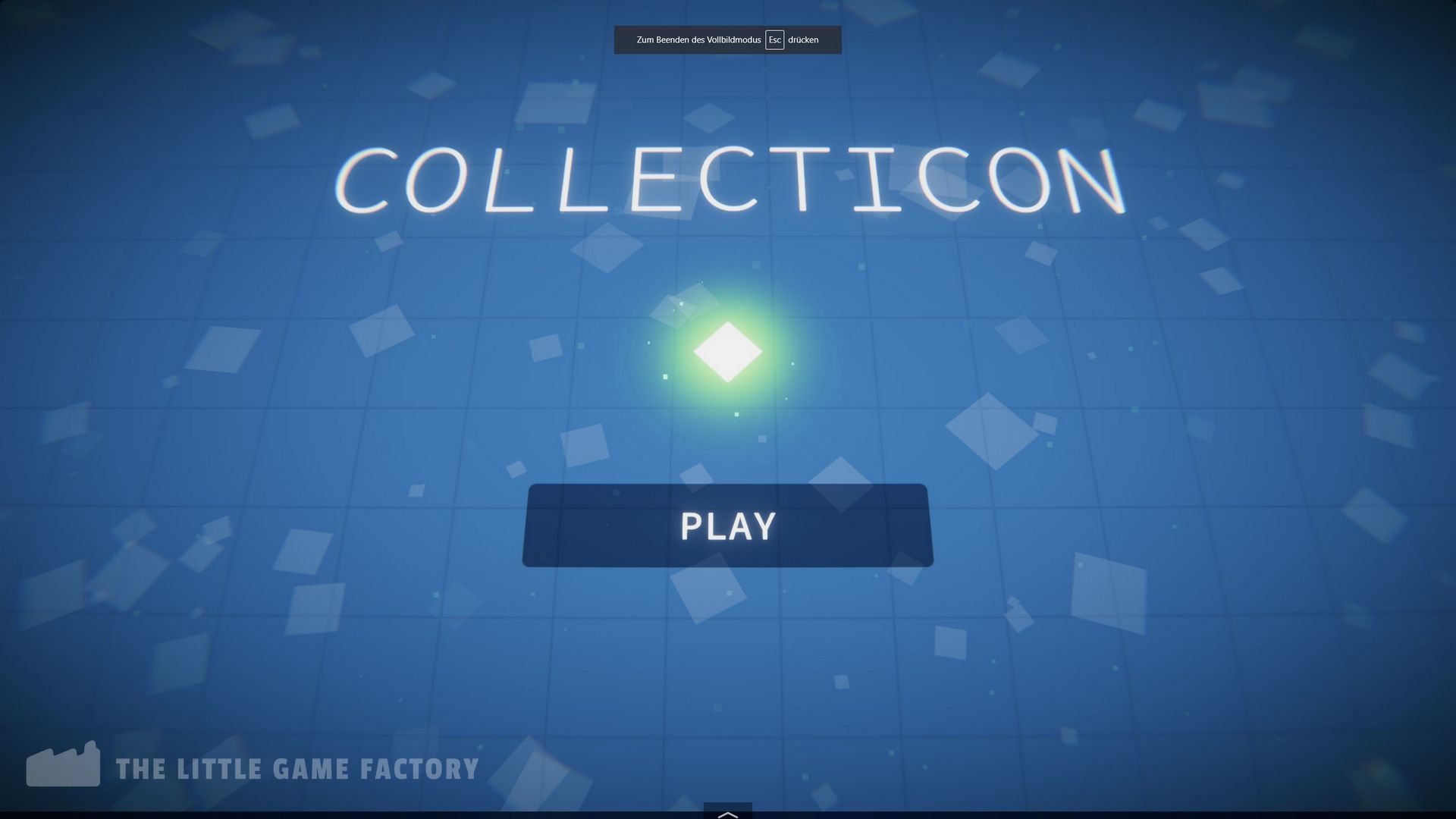
Vector Vanguard: WebGL Blitz – A Frictionless Future for Instant FPS Action?
In the ever-evolving landscape of video games, the quest for instant gratification is a powerful current. We live in an era where patience is a virtue increasingly in short supply, and the idea of waiting for gigabytes of data to download, install, and patch before diving into a game feels almost anachronistic. Enter the browser-based game, a category often dismissed as casual fluff or rudimentary experiences. Yet, every so often, a title emerges that challenges these preconceptions, pushing the boundaries of what’s possible directly within your web browser.
This year, as we hurtle towards 2025, one such title has burst onto the scene with a promise as bold as its vibrant aesthetics: Vector Vanguard: WebGL Blitz. It’s a competitive, instant-play WebGL shooter that aims to redefine accessibility in the FPS genre, offering high-octane action with literally zero barriers to entry. But can a game living purely within your browser truly deliver the depth, polish, and competitive edge that modern shooter fans demand? Or is it merely a fleeting novelty, a testament to technological prowess rather than enduring gameplay? I’ve spent countless hours fragging, capturing data streams, and boosting across its neon-drenched arenas to bring you the full breakdown.
The Unbelievable Convenience: Click, Play, Dominate
Let’s start with the elephant in the room, or rather, the lack thereof: the download. The "instant play" aspect of Vector Vanguard isn’t just a marketing slogan; it’s a fundamental pillar of its existence. From the moment you receive a link, whether it’s from a friend, a social media post, or even a QR code, the journey from "I wonder what this is?" to "Oh my god, I just got a triple kill!" is astonishingly swift. A mere click, a brief loading screen that feels more like a splash page than a traditional game load, and you’re in the main menu, ready to queue.
This frictionless entry is genuinely revolutionary, especially for a game that looks and feels as polished as Vector Vanguard. Gone are the days of clearing hard drive space, battling finicky launchers, or waiting for patch downloads that stretch into hours. It’s the ultimate coffee break game, the perfect spontaneous multiplayer session enabler. Imagine just sending a link to a friend, and within seconds, you’re on the same server, battling it out. This ease of access isn’t just a gimmick; it’s a paradigm shift for how we might discover and engage with competitive online titles, lowering the barrier to entry to practically zero. For casual players, it’s a godsend. For competitive players, it means less time waiting, more time playing.
Diving Into the Blitz: Gameplay Mechanics and Core Loop
Once you’re past the initial "wow" factor of its accessibility, Vector Vanguard needs to deliver on the gameplay front, and for the most part, it does so with surprising competence. At its heart, Vector Vanguard is an arena-style team-based shooter, blending elements of classic Quake-like speed with objective-focused modes that feel reminiscent of Overwatch or Valorant, albeit with a more streamlined approach.
Movement is fast and fluid. Players can sprint, slide, and even wall-run for short bursts, adding a delightful verticality and tactical depth to engagements. The controls are tight and responsive, which is absolutely crucial for any shooter, let alone one running in a browser. There’s a noticeable absence of input lag, a common concern for WebGL titles, which speaks volumes about the optimization efforts by the development team.
The weapon roster, while not expansive, is well-designed and balanced. You’ll find your standard archetypes: a rapid-fire Pulse Rifle for mid-range skirmishes, a satisfyingly chunky Kinetic Shotgun for close-quarters mayhem, a precise Beam Rifle for long-range precision, and a few unique energy weapons that offer alternative playstyles, such as the area-denial Arc Cannon. Each weapon feels distinct, boasting unique recoil patterns, fire rates, and tactical uses. Headshots feel impactful, and the hit registration is consistently accurate, preventing those frustrating moments where you swear you hit your target but the game disagrees.
Vector Vanguard offers a rotating selection of game modes, keeping the experience fresh. Team Deathmatch is the straightforward classic, a pure test of aim and teamwork. "Data Stream Domination" is their take on King of the Hill, requiring teams to capture and hold key network nodes spread across the map. "Code Scramble" is a frantic objective mode where players must retrieve and deposit "code fragments" while defending their own, leading to chaotic pushes and pulls. The maps themselves are intelligently designed, featuring multiple pathways, verticality, and choke points that encourage strategic thinking and dynamic engagements. They’re visually distinct, ranging from neon-lit urban canyons to sprawling data centers, all rendered with a clean, crisp aesthetic that’s surprisingly detailed for a browser game.
Visuals and Audio: Punching Above Its Weight
Let’s be clear: Vector Vanguard isn’t going to be mistaken for a AAA title running on the latest Unreal Engine 5. However, for a game that streams directly to your browser, its visual fidelity is genuinely impressive. The art style leans into a clean, slightly stylized sci-fi aesthetic, reminiscent of early 2010s arena shooters, but with modern optimizations. Character models are distinct and well-animated, even if lacking hyper-realistic detail. What truly shines are the environments – vibrant, multi-layered maps that cleverly use lighting and particle effects to create a sense of dynamism. Explosions have a satisfying pop, weapon effects are crisp, and the UI is intuitive and unobtrusive. The developers have clearly prioritized optimization without sacrificing visual flair, proving that WebGL can deliver more than just rudimentary visuals.
The audio design also deserves commendation. Weapon sounds are punchy and distinct, providing excellent feedback during combat. Footsteps are clear, helping with situational awareness, and the ambient soundscapes of each map add to the immersion. The soundtrack is a driving, synthwave-inspired score that perfectly complements the game’s futuristic, high-energy vibe without becoming overbearing. Voice lines from the game’s announcers are concise and helpful, guiding players through objectives without being irritating.
Performance and Technical Wizardry: The WebGL Miracle
This is where Vector Vanguard truly performs its magic trick. Running a modern 3D shooter directly in a web browser without dedicated software or plugins is no small feat. The underlying WebGL technology, combined with meticulous optimization, allows Vector Vanguard to run remarkably smoothly on a wide range of hardware. I tested it on a high-end gaming PC, a mid-range laptop, and even a relatively old office desktop, and in all cases, the game was playable, albeit with graphical settings adjusted accordingly.
Latency and ping, often the bane of online browser games, are surprisingly well-managed. Matchmaking feels quick and efficient, connecting players to servers that provide a stable connection. Of course, individual internet connection quality will always play a role, but the game itself seems robust in its network performance. Frame rates are generally solid, though intense firefights on lower-spec machines can cause minor dips. The ability to adjust various graphical settings (resolution, texture quality, particle effects) means that most players can find a balance between visual fidelity and performance that suits their setup.
The stability of the game is also commendable. In my dozens of hours of play, I encountered very few crashes or significant bugs. This level of polish, especially for a "new" and innovative platform, speaks volumes about the developers’ dedication to creating a reliable and enjoyable experience.
Progression, Customization, and Monetization: A Fair Deal?
Vector Vanguard is a free-to-play title, which is to be expected for a game aiming for maximum accessibility. The progression system is straightforward: playing matches earns you experience points, which level up your player profile. Each level unlocks various cosmetic items, such as weapon skins, player banners, and emotes. There’s also a seasonal "Battle Pass" model, offering both free and premium tiers of rewards, encouraging consistent play.
Monetization primarily revolves around cosmetic items purchased with an in-game currency, which can either be earned slowly through gameplay or bought with real money. Critically, there are no pay-to-win mechanics. All weapon upgrades, character abilities, and gameplay advantages are earned through skill and play, ensuring a level playing field for everyone. This fair approach to monetization is a huge plus, fostering a healthy community where skill, not wallet size, dictates success. The cosmetic options, while not as vast as some established AAA titles, are varied and stylish, allowing players to personalize their look without breaking the bank.
What Could Be Better: Room for Growth
While Vector Vanguard is an impressive achievement, it’s not without its areas for improvement.
Firstly, while the current map pool is solid, a greater variety would be welcome in the long run. Competitive shooters thrive on fresh environments and new tactical challenges. Similarly, the weapon roster, though balanced, could benefit from more experimental or niche weapon types to deepen the meta.
Secondly, as with any online competitive game, anti-cheat measures will be paramount as the player base grows. While I didn’t personally encounter widespread cheating, the ease of access of a browser game could potentially make it a target for nefarious actors. Proactive and robust anti-cheat systems will be crucial for maintaining competitive integrity.
Finally, while the instant-play aspect is fantastic, a slightly deeper tutorial or onboarding experience for truly new FPS players could be beneficial. While the controls are intuitive, some of the more advanced movement techniques or objective nuances might be missed by those unfamiliar with the genre.
The Future is Frictionless: Why Vector Vanguard Matters
Vector Vanguard: WebGL Blitz isn’t just another shooter; it’s a statement. It’s a powerful demonstration of what WebGL technology can achieve when pushed to its limits. This game represents a significant step towards a truly frictionless future for gaming, where the only barrier between you and a high-quality competitive experience is a web browser.
Its impact extends beyond mere convenience. For players in regions with limited internet infrastructure or those relying on older hardware, Vector Vanguard offers an unprecedented level of access to modern competitive gaming. For developers, it opens up new avenues for distribution and iteration, allowing them to reach a global audience with minimal overhead. It champions the idea that compelling, action-packed experiences don’t need to be locked behind massive downloads and expensive hardware.
The Verdict: A Glimpse into Gaming’s Accessible Tomorrow
Vector Vanguard: WebGL Blitz is a triumph of accessibility and optimization. It delivers a fast, fun, and surprisingly polished competitive shooter experience directly to your browser, proving that the future of instant-play gaming is not only viable but exciting. It successfully marries the convenience of a web application with the thrill and depth typically reserved for dedicated game clients.
While it has room to grow in terms of content variety and long-term meta-game depth, the foundation laid by its tight controls, solid gunplay, intelligent map design, and technical brilliance is exceptionally strong. If you’re looking for a quick burst of adrenaline, a casual session with friends, or simply want to witness a glimpse of what’s possible in the world of browser-based gaming, you owe it to yourself to give Vector Vanguard a try. Just click the link, and prepare for the blitz. It might just change how you think about gaming forever.
Final Score: 8.5/10 – An innovative and highly enjoyable shooter that sets a new standard for browser-based gaming.
